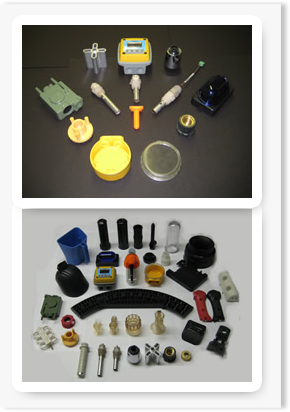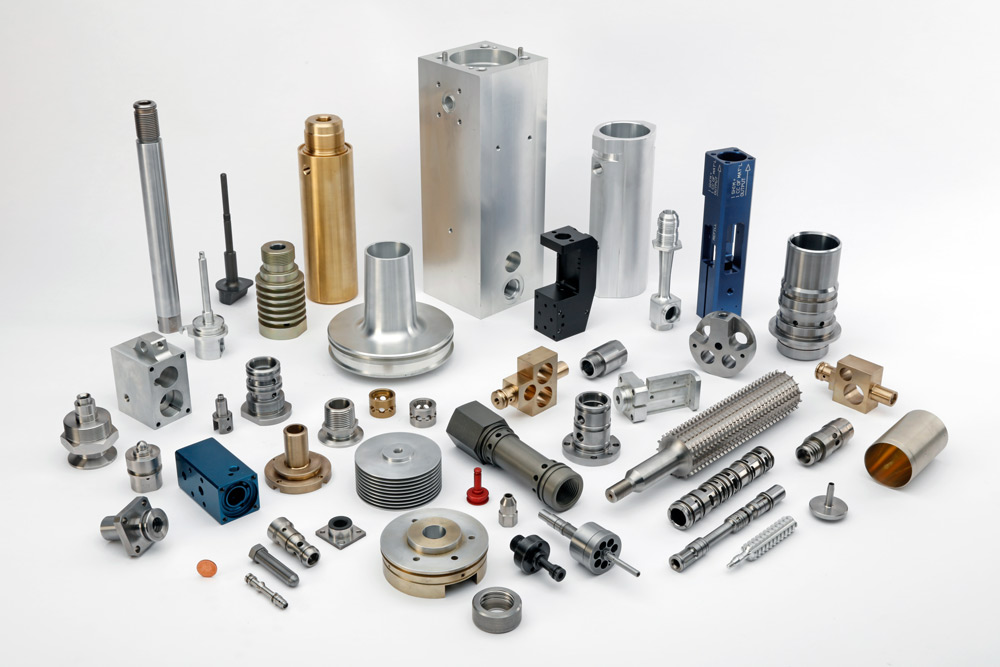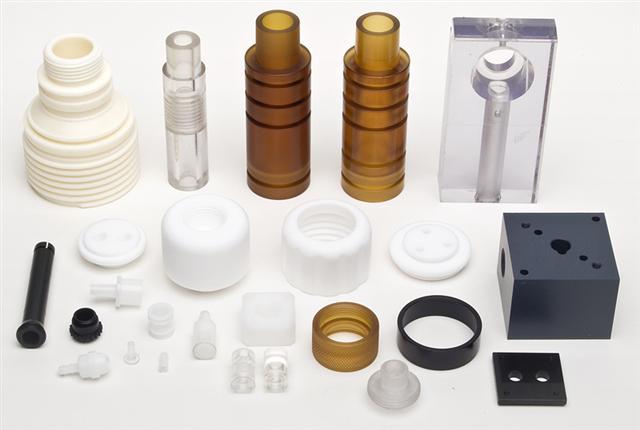
- Medical
- Irrigation
- Agricultural & Farming
- Equipment
- General industrial
- Aerospace
- Automotive
- Defense
- Research & Lab equipments
- Electronics
- Construction
- Communications
- House wares & Consumer Products
- Cosmetics and Personal Care Products
Value Added Secondary Services
In addition to continuously improving our molding capabilities, Hi-Rel Plastics & Molding, Inc. have years of experience in proven advanced molding technologies like

What is CNC Machining?
CNC (Computer Numerical Control) Machining is a subtractive manufacturing process that involves
using high speed, precision machines to remove plastic or metal from a block (“blank”) to create
the design of a part. A CNC machine takes a specific set of code and uses that to cut out a part
from a blank. The CNC machine code has a list of specific instructions on how to create the
part. For example, the code will start off telling the machine where to place the tooltip, how
fast the tooltip should spin and to what coordinates the tooltip should move to (CNC machines
use coordinates on a set axis such as x, y and z axis). Machines commonly controlled in this
manner include vertical milling machines, horizontal milling machines, lathes, routers and
grinders. With CNC machining, parts can be cut out with extreme precision and can be easily
replicated.
Benefits of CNC Machining
CNC Prototyping
When starting a new plastic injection molding project, plastic prototype parts ensure a
product’s design is sound. For most plastic parts, a CNC machined prototype will provide exactly
what is needed for testing. CNC machining allows you to test the form, fit and function of
injection molded parts without having to produce injection mold tooling.
Small Production Run
Since all you need is a proper CAD file, CNC machining is perfect for a small quantity of parts.
Since there is no mold to create, you save money and time by directly creating the product on
the CNC machine. That makes CNC machining perfect for runs under 100 pieces (once you get over
200 pieces it becomes cheaper to produce the parts with injection molding).
Quick Turnaround Time
Unlike in plastic injection molding where a mold has to be produced first, CNC machining doesn’t
have that requirement. Once your files have been uploaded and approved, production can start
right away. This cuts down production time dramatically.
High Quality Parts
CNC machining has many advantages. It is a more precise process than manual machining, and it
provides exact repeatability. Because the computer controls the machine movement, the machine
tools can all move precisely and simultaneously on their axes to create complex,
three-dimensional shapes that would be almost impossible with manual machining. These qualities
make CNC machining a good manufacturing process for jobs that require a high level of precision
or repetition.
For plastic parts, due to the materials available and the production process itself, CNC
machining can produce more robust parts compared to 3D printing. Therefore, they can be
subjected to the same conditions as the eventual injection molded production parts.
Materials for CNC Plastic Machining
CNC machining is a good choice for making prototypes and low-volume plastic parts. Since CNC
machining can be done with different materials than used in the 3D printing process, for
example, it is frequently used for situations where the prototype needs to be tested under the
same conditions as the injection molded production parts will be subjected to, and thus made of
the same material. There can also be better structural integrity of parts that are CNC machined
compared to 3D printed, due to the nature of the manufacturing process.
Some of CNC plastic materials are:

• ABS
• Acetal( Delrin / Celcon )
• HDPE
• Noryl
• Nylon
• PC
• PEI
• PMMA (Acrylic)
• POM
• PTFE (Teflon)
• PVC
• UHMW
• ULTEM
CNC Machining Metal
CNC machining is a subtractive manufacturing process in which a block of metal (“blank”) is
machined into the design of the final part. CNC stands for Computer Numerical Control, and it
utilizes computers executing code sequences to automate the machine tools which cut the metal to
the design model of the part.
In CNC milling, the blank is held stationary while tools on various axes machine the part. In
CNC turning, the part spins in a lathe while being machined. CNC machining is a good
manufacturing process for small volumes of metal parts, such as prototypes and low
volumes.
Once your metal part is machined, we can also perform secondary processes like anodizing,
plating and powder coating. You can also request tolerances tighter than our standard +/-
0.002″, or other custom processes.
Whether your CNC machined metal parts are for testing the form, fit and function of a prototype,
or for a low volume of finished parts, we provide a low-cost option with a fast
turnaround.
Some of CNC Metal Materials
• A36 Steel Plate
• Alloy Steel 4140
• Aluminum 2024
• Aluminum 5052
• Aluminum 6061-T6
• Aluminum 6063
• Aluminum 7050
• Aluminum 7075 T6
• Bearing Bronze C932
• Easy Forming Brass 260
• Free Machining Brass C360
• Low Carbon Steel 1018
• Stainless Steel 17-4
• Stainless Steel 303
• Stainless Steel 304
• Stainless Steel 316/316L
• Titanium (Ti-6AI-4V)


